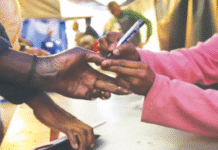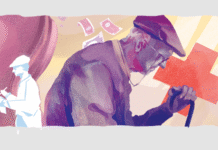Freedom, a many-splendoured thing, illuminated our lives on this day, on a declining winter afternoon, forty one years ago. It came suddenly and yet it had been a phenomenon we waited for in the preceding nine months.
In those nine months, three million of our citizens fell prey to the predatory instincts of the Pakistan occupation army and its local goon squads; two hundred thousand Bangalee women were raped; hundreds of villages were burnt and, indeed, an entire country was put to the torch.
A thousand miles away, the Father of the Nation, Bangabandhu Sheikh Mujibur Rahman, in solitary confinement, was on secret trial before a military tribunal set up by the junta; and in Mujibnagar, a brave political leadership comprising a quartet of Tajuddin Ahmed, Syed Nazrul Islam, M Mansur Ali and AHM Quamruzzaman, devised battlefield and political strategy toward the attainment of freedom.
Thousands of young men from our villages and our towns had trooped off to join the Mukti Bahini, with many eventually sacrificing themselves in battle. Ten million Bangalee refugees eked out a living in camps in India. At home, in internal exile, were sixty five million other Bangaleess hoping and praying for liberty to dawn.
On December 16, 1971, the waiting came to an end. It had been a wait of nine months. You could call it a wait of a lifetime. Our struggle drew the attention of the world. India under Indira Gandhi went out on a limb to make sure we emerged as a free nation; the Soviet Union ensured, at the United Nations Security Council, that all efforts to prevent Pakistan’s defeat in Bangladesh were nullified by the vetoes it cast on resolutions aimed at giving Islamabad a face-saving way out of the crisis.
The Nixon administration in Washington turned its face away from us; the Chinese made it obvious they would not abandon their friends the Pakistanis. In Britain, its government, its media and its people sympathised with us in our plight. Americans, despite Nixon-Kissinger, wished us well.
Across large swathes of the globe, people read about our misery and our struggle and clearly expected us to win the war. In France, the soldier-scholar Andre Malraux offered to lead a brigade in the war against the Pakistanis. Pandit Ravi Shankar and George Harrison sang for us in New York, to give a boost to our war for justice based on freedom.
We won that war, though the sacrifices of millions, through the martyrdom of our Muktijoddhas on the war fields. We were helped immensely in the attainment of liberty by the sacrifices of thousands of Indian soldiers who had come to defend a nation in distress. On the eve of victory, it was scores of the nation’s leading lights — academics, writers, doctors, journalists — who were frog-marched to death by the murder squads of the quislings of the enemy. These brave men and women died in order for us to breathe free in a land of liberty.
And then there were the men who, prisoners of the occupation army in cantonments across Bangladesh, were subjected to regular torture, to a point where they eventually succumbed to death.
This morning, forty one years after the state of Pakistan surrendered to the Bangalee nation, it is time to recall the old struggle, the ancient yearning for liberty. Heritage is all, for it contains the values one generation must hand down to the one succeeding it. And then heritage must be passed on, again and again, to generations that arise in the passage of time.
Our heritage is one of poetry creating lilting music in the expanses of our hamlets and villages and towns. It is one of healthy politics constantly adding newer substance to our democracy. History has been ours to mould. And because it has, we caused a revolution in 1971.
It is this heritage, encompassed in the militant song of Joi Bangla, that we uphold once again this morning. We celebrate ourselves today, even as we mourn those who made December 16 possible for us through walking to death without flinching, without batting an eyelid, without complaint.
This morning, it is time to remember the past, to reinvent ourselves — through rededicating ourselves to the ideals on which we waged and won an epic war many winters ago.
Source: The Daily Star











As a freedom fighter, I have often wondered what if our leader Sk.Mujib was there to lead our freedom fight. At the same time, I have failed to yet understand the reason for his surrender. I thought that was a big betrayal of the 75 million people that responded to his call to arms. Sk.Mujib actually had no clue as to what happened during those months of war of liberation of Bangladesh. For him to subsequently lead the newly independent nation was impossible – he simply was’nt qualified. He failed – paid with his life and left the nation in a mess. Thank you Bangabandhu – some friend.